‘Trump will handle this’: Florida man tried to force Iraqi family out of his neighborhood, police say
/in Firm News /by Jolie BalidoSCO sues Novell, claiming slander
/in Firm News /by hsmpaBy Brice Wallace, Deseret News
The feuding between two Utah County companies has blossomed into a lawsuit.
Lindon-based SCO Group Inc. on Tuesday led a slander suit against
Provo-based Novell Inc., saying Novell has hurt SCO business by, in
part, making false and misleading claims that it owns the copyrights to
the Unix computer operating system and UnixWare.
SCO, which has sued New York-based International Business Machines
Corp. about alleged illegal placement of Unix into the open-source
Linux operating system and threatened lawsuits against other
companies for the same thing, led the suit against Novell in state court
in Salt Lake City.
The suit seeks preliminary and permanent injunctions, plus damages to
be determined at trial.SCO claims Novell has improperly led copyright registrations for Unix
technology covered by SCO’s copyrights; falsely claimed publicly that it
owns Unix and UnixWare copyrights, which it says has harmed SCO’s
copyrights, its business and its reputation; made false statements
intended to cause customers and potential customers to not do
business with SCO; and tried to block SCO’s ability to enforce its
copyrights.
The injunction seeks to assign SCO the Novell-registered copyrights,
prevent Novell from claiming ownership interest in those copyrights
and require Novell to retract representations it has made about its
alleged ownership.
“SCO takes this action today given Novell’s recent and repeated
announcements regarding their claimed ownership of the Unix and
UnixWare copyrights,” SCO attorney Mark Heise said in a prepared
statement. “SCO has received many questions about Novell’s actions
from potential customers, investors and the press. Although SCO owns
the Unix and UnixWare copyrights, Novell’s efforts to claim ownership
of these copyrights has forced this action.”
Heise said a 1995 asset purchase agreement and amendment between
the companies makes SCO the copyright owner.
Novell spokesman Bruce Lowry said Tuesday afternoon he had not
seen the suit and that the company declines to comment on anylawsuits. “We will defend our interests,” he said. “We have made fairly
clear statements about the copyrights issue.”
On Dec. 22, Novell issued a statement saying, “Novell believes it owns
the copyrights in Unix and has applied for and received copyright
registrations pertaining to Unix consistent with that position.”
SCO said that day that it would challenge Novell’s ownership
assertions, after learning that Novell had registered several versions of
Unix with the federal copyright office.
Novell and SCO have been waging a war of words since last spring
about control over Unix. Novell bought Unix from AT&T Corp. in 1992,
and SCO has said it bought the rights to Unix in 1995 for $145 million
from Novell.Novell and IBM are among companies that have begun developing
products for use in Linux, a freely distributed operating system that is
enhanced by contributions from developers worldwide.
SCO has offered companies licenses to use its intellectual property in
Linux distributions.
“They have just had about enough of Novell these days,” said Brian
Skiba, an analyst with Deutsche Bank who rates SCO shares a “buy” and
doesn’t cover Novell. He said he doesn’t own shares of either company.
“A lot of people in the open source community have viewed Novell’s
statement as a rallying cry,” said lawyer Jeffrey Osterman of Weil,
Gotshal & Manges LLP. “This all came to a head sometime in the past
couple of weeks” with the postings on Novell’s Web site.
The battle between SCO and IBM was the topic of a meeting Tuesday at
the Free Software Foundation, said Osterman, vice chair of the open-
source subcommittee of the Intellectual Property Owner’s Association.
“Folks have said that if SCO does not own the copyrights, then SCO
can’t bring copyright claims and thus people don’t have to worry and
don’t have to take licenses,” he said. “That’s a problem for SCO. This
lawsuit is an attempt by SCO to de ect whatever effect the Novell
postings have had on SCO’s licensing program.”Novell stock rose 30 cents Tuesday to close at $12.41, its highest point
during the past year. The price has been as low as $2.14 during that
time. SCO stock rose 50 cents to close at $15.95. It has ranged from $1.09
to $22.29 during the past year.
Contributing: Bloomberg News
E-mail: bwallace@desnews.com
SCO to attack validity of Linux licence
/in Firm News /by hsmpaSCO’s strategy for its lawsuit against IBM could destroy the legal foundation of Linux and related software
By Matthew Broersma
SCO Group is planning to argue in its court battle against IBM that the General Public License
(GPL) covering Linux and other open-source software is invalid, according to a report.
SCO, owner of several key copyrights related to the Unix operating system, has been
aggressively defending its intellectual property holdings connected to Unix System V, and
filed a $3bn (£1.87bn) lawsuit against IBM earlier this year. The suit claims that IBM has
committed trade-secret theft and breach of contract for allegedly copying proprietary Unix
source code into its Linux-based products.
IBM’s defence will partly rest on the argument that SCO distributed its own version of Linux for
many years, containing the allegedly infringing code, and that by this action effectively placed
the code in question under the GPL.
SCO is planning to respond that the GPL itself is invalid, SCO’s lead attorney, Mark Heise of
Boies Schiller & Flexner, told the Wall Street Journal in a report on Thursday.If SCO is successful, its lawsuit would undermine the legal basis for Linux and much other
open-source software, although the open-source community has prepared an alternative
licence that could be used by Linux if the GPL is invalidated.
SCO will argue that the GPL’s provisions allowing unlimited copying and modification are not
compatible with US copyright law, which allows software buyers to make only a single copy,
says the Journal. Heise said the GPL “is pre-empted by copyright law”, according to the report.
Broadly speaking, the GPL allows anyone to modify and redistribute a piece of software
covered by the licence, as long as the modified code is returned to the developer community.
The licence also requires that software that incorporates GPL-covered code must itself be
placed under the GPL, a provision that led a Microsoft executive to compare the GPL to an
“un-American cancer” (http://news.zdnet.co.uk/software/0,39020381,2092085,00.htm) .
Heise’s remarks echo the comments of SCO chief executive Darl McBride during a recent
teleconference, in which he announced a set of licence fees that companies using Linux could
pay if they wanted to avoid legal action by SCO.McBride was unusually blunt in attacking open-source software, saying the GPL is
fundamentally flawed from a business and legal perspective. “At issue here is more than just
SCO and Red Hat,” McBride said. “What is at issue here is whether intellectual property rights
will have any value in the age of the Internet.”
Red Hat, one of the largest distributors of Linux and related applications, filed a suit against
SCO earlier this month in the US District Court in Delaware. The suit in part seeks a court
ruling affirming that the company has not violated SCO’s trade secrets or intellectual property
rights. It claims that SCO’s actions are intended to hurt Red Hat and other Linux backers by
creating “an atmosphere of fear, uncertainty and doubt about Linux”, according to the suit.
CNET News.com’s Matt Hines contributed to this report.

2990 Ponce de Leon Boulevard, Suite 300, Coral Gables, Florida 33134
T 305 800 4476 • info@hsmpa.com






